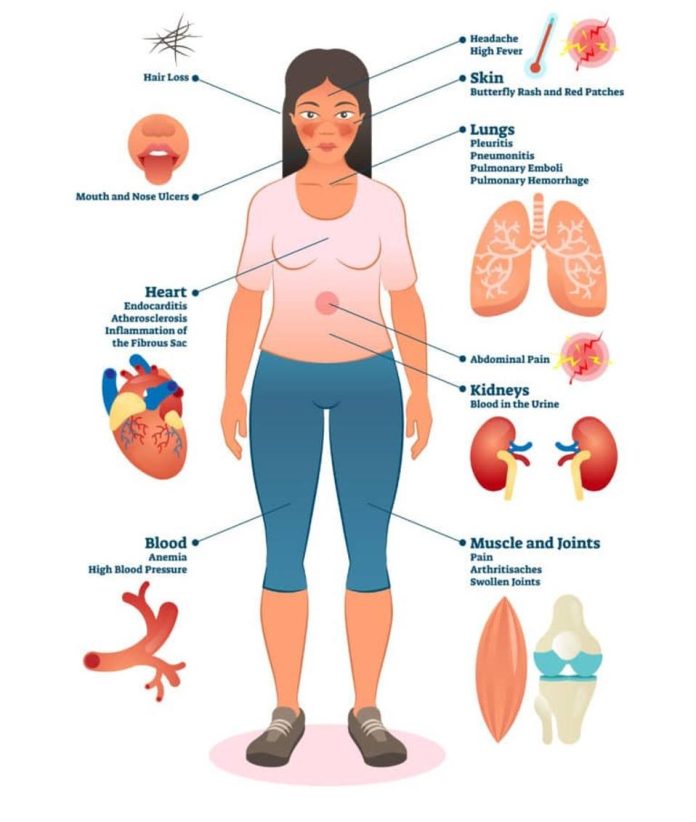Lupus and cancer are two distinct conditions that often get confused due to some overlapping symptoms and health risks. While lupus is not cancer, understanding the relationship between these two diseases is crucial for proper care and prevention. Let’s explore the key differences and similarities between lupus and cancer, and what this means for those affected by lupus.
Lupus: An overzealous immune system
Lupus, formally known as systemic lupus erythematosus (SLE), is an autoimmune disease. Dr. Sarah Johnson, a rheumatologist at Central City Hospital, explains, “In lupus, the immune system becomes overactive and starts attacking the body’s own tissues. This can affect various parts of the body, including the skin, joints, kidneys, heart, and brain.” Common symptoms include fatigue, joint pain, skin rashes, and fever.
Cancer: When cell growth goes awry
Cancer, on the other hand, occurs when cells in the body start growing uncontrollably. According to Dr. Michael Chen, an oncologist at Metro Cancer Center, “Unlike lupus, where the immune system is overactive, in cancer, the immune system fails to recognize and fight abnormal cells effectively.”
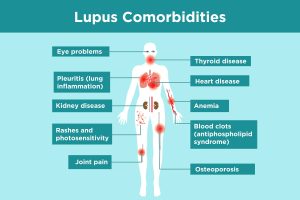
The lupus-cancer connection
While lupus isn’t cancer, research has uncovered some intriguing links between the two conditions. A study published in the Journal of Autoimmunity found that people with lupus may have an increased risk of developing certain types of cancer, including non-Hodgkin lymphoma, lung cancer, liver cancer, and cervical cancer. However, Dr. Johnson emphasizes,
“It’s important to note that having lupus doesn’t guarantee you’ll develop cancer. The risk is slightly elevated, but not dramatically so.”
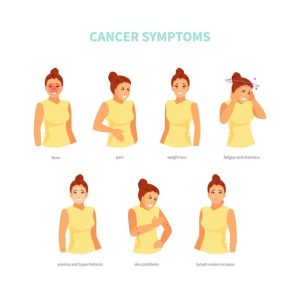
Similarities that can cause confusion
Both lupus and cancer can cause inflammation in the body, leading to symptoms like fatigue, fever, and weight loss. Dr. Chen notes, “Additionally, some cancer treatments, such as chemotherapy, can weaken the immune system and trigger symptoms similar to lupus. These overlapping symptoms can sometimes lead to confusion in diagnosis.”
Key differences
Despite some similarities, lupus and cancer are fundamentally different. Dr. Johnson outlines the main distinctions:
- Lupus is an autoimmune disease, while cancer is not.
- Lupus is a chronic condition requiring ongoing management, whereas cancer treatment often aims for remission.
- Lupus primarily affects organs and tissues through inflammation, while cancer involves abnormal cell growth that can spread throughout the body.
- Lupus doesn’t cause tumors like cancer does.
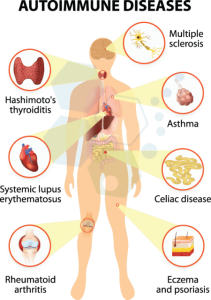 What this means for you
What this means for you
If you have lupus, it’s crucial to stay vigilant about your health. Dr. Johnson advises, “Regular check-ups and cancer screenings are essential, given the slightly elevated risk. However, there’s no need for undue anxiety. Remember, having lupus doesn’t mean you’ll definitely develop cancer.”
Dr. Chen adds, “If you’re experiencing concerning symptoms, always consult with a healthcare professional. Only a qualified doctor can provide an accurate diagnosis and appropriate treatment plan.”
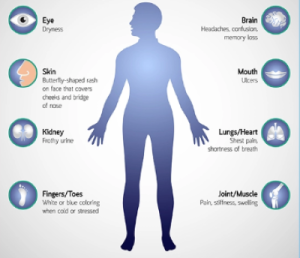
According to the Lupus Foundation of America, with proper care and management, people with lupus can lead healthy, fulfilling lives while minimizing their cancer risk. They recommend maintaining a healthy lifestyle, following your treatment plan, and staying up-to-date with recommended screenings.
In conclusion, while lupus and cancer share some similarities, they are distinct conditions with different causes and treatments. Understanding these differences can help individuals with lupus manage their health more effectively and reduce anxiety about potential cancer risks.
Always consult with your healthcare provider for personalized advice and care.

